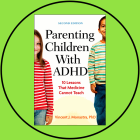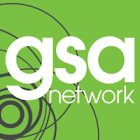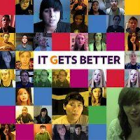Tag Archives:advocacy
Parenting Children with ADHD: 10 Lessons That Medication Can’t Teach by Vincent J. Monastra, PhD share
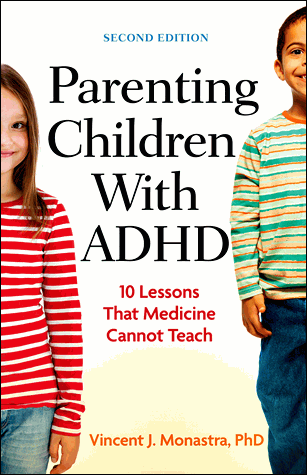 Written by a psychologist who has lots of experience working with kids with ADHD, this is an easy-to-read book that is broken down into short chapters giving a nice overview of ADHD and explaining things that are important for kids with these issues that doesn’t involve medication. Also, it’s not that Dr. Monastra is anti-medication, it’s just that his experience (and scientific research) has shown that there are additional/other interventions that can be helpful for kids (and adults!) with ADHD. Basically, medication alone is not enough. He talks about things like diagnosis, the role of medication and what it can and can’t do, how to work with the school to support your child’s success, developing emotional control, and giving yourself a break as a parent.
Written by a psychologist who has lots of experience working with kids with ADHD, this is an easy-to-read book that is broken down into short chapters giving a nice overview of ADHD and explaining things that are important for kids with these issues that doesn’t involve medication. Also, it’s not that Dr. Monastra is anti-medication, it’s just that his experience (and scientific research) has shown that there are additional/other interventions that can be helpful for kids (and adults!) with ADHD. Basically, medication alone is not enough. He talks about things like diagnosis, the role of medication and what it can and can’t do, how to work with the school to support your child’s success, developing emotional control, and giving yourself a break as a parent.
Excerpt from the publisher’s summary: “Kids with ADHD need to be loved and shown how to become successful adults. Unfortunately, their lack of attention and restlessness often get in the way. Parents of these kids try so hard to stay connected and remain patient in the face of daily frustration. However, it is an incredible challenge to remain positive and involved when your child does not respond to the kinds of strategies that work for other children. Without guidance and systematic treatment, these bright, inquisitive children are unlikely to graduate from high school, are more prone to use illegal drugs, and struggle to maintain employment as adults.”
Note: I have the 2005 version. In writing this post I see that there is a 2014 version. So I don’t know what has changed between the two.
* I don’t make any money from the books that I recommend. My reviews are solely based on wanting to let people know what’s out there and could be helpful to them.
Gay Straight Alliance (GSA) Network share
Gender Sexuality Alliance (GSA) clubs, are typically found in high schools and colleges. The GSA Network supports Gender & Sexuality Alliance (GSA) clubs for students in high school and college settings. These clubs are incredibly important because I have found that they are often the first safe place in a teen’s life where they can let down their guard, express their true-selves and feel real-life support that they haven’t found in other parts of their young lives.
As I described in my post about GLSEN (another organization that provides support to GSA’s), the GSA Network is one of two organizations that helps to set-up, advocate for, and provide resources to individual GAS clubs, The GSA Network operates the GSA Network of California, which connects over 900 clubs across the state, the National Association of GSA Networks, which unites 40 statewide networks of GSA clubs, and GSAs Unite, an online campaign and petition platform supporting youth organizers across the country. (As far as I can tell, GSA’s were originally orchestrated and supported by the GSA Network, originating in California. It seems that GLSEN has stepped in as another agency that supports these clubs.)
If there isn’t a GSA club available in your (or your child’s) school, and you would like to start one, they can help you do this. They also provide ongoing resources to help run a successful, healthy, supportive club.
"It Get's Better" Project share
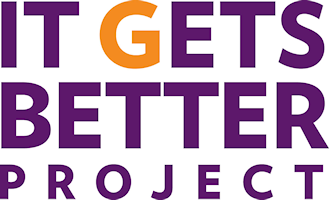 I first became aware of the It Gets Better movement from a viral video back in October 2010. Joel Burns, an elected official, made a speech at a Fort Worth, TX city council meeting. He had been deeply troubled by several gay teens committing suicide and had a personal message he felt compelled to share with other teens that might be experiencing the same emotional pain. You can check out this powerful speech on YouTube.
I first became aware of the It Gets Better movement from a viral video back in October 2010. Joel Burns, an elected official, made a speech at a Fort Worth, TX city council meeting. He had been deeply troubled by several gay teens committing suicide and had a personal message he felt compelled to share with other teens that might be experiencing the same emotional pain. You can check out this powerful speech on YouTube.
I honestly don’t know if he has any connection to the formal It Gets Better organization but, according to their website, they started up the month before Joel’s speech. Since that time, they have produced and collected many inspirational videos, from famous people and regular people, about why, even when things seem so hard as an LGBTQ youth, you need to hold on because when you grow up and are an adult, you can chart your own course, find a community that supports you for you, and feel like life is worth living.

